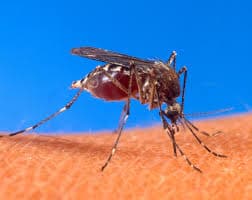by Nick Taylor
Chikungunya. It sounds like a tongue-twister or some kind of fusion recipe involving chicken. It’s actually much worse, and it’s affecting many people’s travel plans this winter.
Chikungunya is a mosquito-borne virus sweeping the Caribbean as well as Central and South America. It started to spike last winter and according to the Centers for Disease Control (CDC) “continues to spread with no sign of slowing down.” That’s why we’re passing on this winter vacation travel warning.

Before the outbreak, an average of 28 chikungunya sufferers returned to the U.S. from the outbreak zone each year. This year, through early November, 1,600 travelers came back with the disease. Some 800,000 cases have occurred in 37 countries and territories in the Western Hemisphere.
No one is sure why, but the mosquitoes that spread chikungunya bite mostly during the day. So travelers headed for Caribbean, Central and South America – where you’re going for some winter sun, right? – are advised to wear long-sleeved shirts and long pants during the day. Once you slather the sunscreen on your tasty bits that are still exposed, add insect repellent on top of that. And stay in air-conditioned or well-screened rooms at night.
Be especially careful if you’re over 65, have arthritis or underlying conditions including heart disease, high blood pressure, or diabetes. Travelers in these high-risk groups should let their doctors know about their plans.
The illness is rarely fatal, but it’s uncomfortable at best. Its victims, says the CDC, “typically develop fever and joint pain. Other symptoms can include muscle aches, headaches, joint swelling, or rash.” The joint pain can be severe and debilitating. And there’s no preventive vaccine and no specific treatment except time; victims usually recover in about a week, but some experience long-term joint pain.
If there’s any good news in all of this, it’s that unlike ebola, the chikungunya virus is not spread between people.




